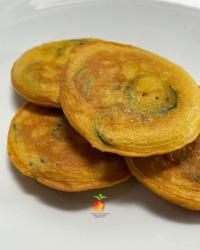Copy Link
Add to Bookmark
Report
HOMEBREW Digest #2600

HOMEBREW Digest #2600 Sat 03 January 1998
FORUM ON BEER, HOMEBREWING, AND RELATED ISSUES
Digest Janitor: janitor@hbd.org
Many thanks to the Observer & Eccentric Newspapers of
Livonia, Michigan for sponsoring the Homebrew Digest.
URL: http://www.oeonline.com
Contents:
Schmidling take him off the digest. (Evan Kraus)
slow start ferment (AlannnnT)
Curmi ("Graham Wheeler")
NA Brew (Randy Lee)
BS ("David R. Burley")
Re: RIMS, Soma, Dr Dogma, Corn and the Bottom line (dfikar)
Electric Brewing (KennyEddy)
Jim Arbuckle ("David R. Burley")
Re: Newbie kegger (Spencer W Thomas)
High Tech Innovations Grain Mills (Evan Kraus)
Jethro's bagels (haafbrau1)
MIXMASHER vs RIMS (Jack Schmidling)
Corma ("Grant W. Knechtel")
MIXMASHER (R) (Roger Kohles)
Plastic Buckets (Curt Sutliff)
mixmasher??? (Kyle Druey)
NOTE NEW HOMEBREW ADDRESS: hbd.org
Send articles for __publication_only__ to homebrew@hbd.org
(Articles are published in the order they are received.)
If your e-mail account is being deleted, please unsubscribe first!!
To SUBSCRIBE or UNSUBSCRIBE send an e-mail message with the word
"subscribe" or "unsubscribe" to homebrew-request@hbd.org.
**SUBSCRIBE AND UNSUBSCRIBE REQUESTS MUST BE SENT FROM THE E-MAIL
**ACCOUNT YOU WISH TO HAVE SUBSCRIBED OR UNSUBSCRIBED!!!
IF YOU HAVE SPAM-PROOFED your e-mail address, the autoresponder and
the SUBSCRIBE/UNSUBSCRIBE commands will fail!
For "Cat's Meow" information, send mail to brewery@realbeer.com
Homebrew Digest Information on the Web: http://hbd.org
Requests for back issues will be ignored. Back issues are available via:
Anonymous ftp from...
ftp://hbd.org/pub/hbd/digests
ftp://ftp.stanford.edu/pub/clubs/homebrew/beer
AFS users can find it under...
/afs/ir.stanford.edu/ftp/pub/clubs/homebrew/beer
JANITORS on duty: Pat Babcock and Karl Lutzen (janitor@hbd.org)
----------------------------------------------------------------------
Date: Fri, 02 Jan 1998 07:19:40 -0500
From: Evan Kraus <ekraus@avana.net>
Subject: Schmidling take him off the digest.
Take him off this forum !!!!!!
All he uses this is for his own benefit !!!!
It is a great sales tool for him !!!!
GET RID OF HIM !!!!!!
------------------------------
Date: Fri, 2 Jan 1998 07:30:34 EST
From: AlannnnT <AlannnnT@aol.com>
Subject: slow start ferment
To: swschult@CBDCOM-EMH1.APGEA.ARMY.MIL
RE:
Slow starting ferment.
Assuming the Nottingham was fresh and viable, sounds like the wort was
someplace too cold for a fast start. Powdered yeasts start fast at 67-68 deg F
or higher, but lag times increase dramaticaly at lower than 65-66. Did you
have this carboy in a cool basement?
Some observations:
I stock and sell Nottingham and Edme in my store. Edme is one of the best
starters and very tolerant of pitching temp for the most part. The Danstar
line, including Nottingham, have very clean flavor profiles and are used by a
lot of very experienced brewers because of their quality. [As has been seen on
the HBD]
I often recommend Edme, in the blue and gold pouch, to novice brewers because
it seems to produce 'good enough' results and no one has ever complained that
it would not start. It also has twice as much yeast in each package.
Make sure you buy your yeast from someplace that keeps it refrigerated, even
dry yeast. Dry yeast does have a long shelf life, but in the fridge it is at a
constant temp, and stays better.
Alan
Karps Homebrew
Happy [Hoppy] New Year!
------------------------------
Date: Fri, 2 Jan 1998 13:05:41 -0000
From: "Graham Wheeler" <Graham.Wheeler@btinternet.com>
Subject: Curmi
In HBD 2599 Dan Cole said:
> Has anyone ever stumbled across information regarding an ancient beer
> made by the Celtics called "korma, courmi or coirm"?
>"The beer of the ancient Celts is various referred to as korma, courmi
> or coirm. The second-century Greek physician and writer on medicine,
> Dioscorides, said that 'Coirm, being drunk by the Irish instead of wine,
> produces headaches, is a compound of bad juices, and does harm to the
> muscles."
The account Dan quotes is from Pytheus, a Greek navigator who visted
Britain in the 4th century BC. I think Guinness are pushing their
historical luck a bit to suggest that Pytheus actually visited Ireland, but
you never know.
The following is a snip from one of my (unpblished) books, researched from
various sources, which gives the little that I know about Pytheus and
curmi.
******
It is said that ale was first introduced into Britain by the Celts as early
as 500 bc, but it is fair to assume that ale has been around for as long as
barley has been cultivated, and that predates 500 bc by a few thousand
years. The first solid evidence of beer being made in Britain comes from a
Greek navigator and explorer, Pytheus of Marseilles, who visited Britain in
304 bc. He said of Britain: "The island is thickly populated and has an
extremely chilly climate. The people of Brittania are simple in their
habits and far removed from the cunning and knavishness of modern man. They
are unusually hospitible and gentle in manner. Their diet is inexpensive...
They do not drink wine, but a fermented liquor made from barley, which they
call curmi... It is a compound of bad juices which gives headaches and does
harm to the muscles. It [Britain] has many kings and potentates who live
for the most part in a state of mutual peace."
Pytheus described the method by which the Britons harvested their grain
while it was still green and then dried it so that it would keep. He
described how the drying was performed using fires; the grain being parched
over specially-constructed hearths, the design of which varied from place
to place. He also remarked that grain was one of Britian's chief exports,
as was "clever hunting dogs".
Unfortunately, Pytheus's original account has been lost and we rely on
other Greek historians, writing much later, to relate his story.
Unfortunately, Pytheus was laughed at because his people did not believe
his fanciful stories of the congealed sea (pack-ice), chunks of solid sea
bigger than his ship (icebergs), or that the sun never set in the far
north, among many other discoveries that his Mediterranean contempories
found laughable. Later writers, such as Strabo (born 63bc), writing some
200 years later, still treated Pytheas's accounts of his travels with
scorn, as if he were a fraud, and much interesting historical information
about Celtic Britain, and probably the production of curmi, has undoubtably
been lost or suppressed.
*****
Anyway, botton line is that it seems that the ancient Britons had grain
drying kilns and thus had the technology to make malted barley long before
the Romans popped over for a pint!
Graham Wheeler
High Wycombe
England
------------------------------
Date: Fri, 02 Jan 1998 07:53:55 -0600
From: Randy Lee <rjlee@imation.com>
Subject: NA Brew
Rob Moline asserts:
>> Pro operations that produce NA beer rely on very expensive techniques
involving vacuum centrifuges, etc. <<
Interesting. I've not found anything in the literature about how this is
done large scale, but I have found reference to the fact that during
prohibition, brewers brewed regular beer as the first step towards NA
(which explains how easy it was to slip a live one out now and again).
Now in the late 20's I can figure that they didn't have vacuumm
centrifuges or anything like that level of technology. Anyone with a
loooong memory of how the big boys did it at that time?
Randy Lee
Western Norway (Wisconsin)
------------------------------
Date: Fri, 2 Jan 1998 09:48:25 -0500
From: "David R. Burley" <Dave_Burley@compuserve.com>
Subject: BS
Brewsters:
Although he didn't mention me by name, Rob Moline's comment
about my emotional outburst to Jack S's "lazy brain" , beer-a-day
method of dealing with alcoholism was out of line with the way I
expect myself to deal with topics here. But I did it unashamedly =
and I would do it again because the risk of non-experts ( being a
recovering alcoholic like JackS claims does not make him an expert
on treatment) harming someone else's life by providing such
"information" to others who may be desperately searching for help
is too great. If someone gives you bad advice on how to brew a
beer, you only lose a batch and learn something in the process. =
That's what this forum is all about. If someone gives you bad advice
on how to deal with alcoholism, we're talking about a serious thing
that can affect someone's, and those around him, whole life from
which they may never recover. I wanted to sound an alarm as loud
as I could and chose this method.
If we want to have a discussion on alcoholism, its identification
and treatment, I think we should use professional papers ( just
like we do beer) and experts ( treatment professionals) on the
subject to make short presentations and then discuss those
presentations in light of their applicability. Definitely not present
a theory without professional support, especially by an admitted
alcoholic in denial like JackS. You may have read Dr. Dean Fikar's
comments that it *still* is the recent medical opinion that alcoholics
have NO tolerance for alcohol and that there is NO established
lower limit on the amount of alcohol such an afflicted person can
consume. That was my point and I believe JackS is treading on
dangerous ground and perhaps leading others onto it if he
continues in his present vein.
I quote Dr. Fikar's comments from the January 2, 1998 HBD
because they so perfectly reflect my feelings:
>I'd be willing to bet that there is a problem drinker out there
in cyberspace
>reading your's and Jack's posts and thinking "maybe, just maybe,
I can start
>drinking again in moderation". If I can save just one alcoholic
from trying
>to rationalize another attempt at "moderate" drinking then this
use of =
>HBD bandwith is worth it. =
Thanks, Rob, for giving me the chance to explain myself on this matter.
- ----------------------------------------------
Keep on brewin'
Dave Burley
Kinnelon, NJ 07405
103164.3202@compuserve.com
Dave_Burley@compuserve.com =
Voice e-mail OK =
------------------------------
Date: Fri, 2 Jan 1998 09:08:15 -0600 (CST)
From: dfikar@flash.net
Subject: Re: RIMS, Soma, Dr Dogma, Corn and the Bottom line
>RIMS, Soma, Dr Dogma, Corn and the Bottom line (Jack Schmidling)
>From: dfikar@flash.net
>Subject: Re: Take it off. PLEASE
>
>"""Take this note off your page. PLEASE!!!
>
>""This one really bugs me because by saying that, you make it
>obvious that you did not read it.
I never claimed to have read it. What did I miss in your post that justifies
your dangerous claim that alcoholics can have a drink per day and not be at
considerable risk for relapse?
>
>"This may apply to you.....
>
>Thank you. All I ever claimed was my own experience. I do not
>give free medical advice.
>
Sounds like that's what you're doing by implying that alcoholics can drink one
drink per day and be OK. Maybe you can but most can't.
>" but I can say with assurance, as an M.D., that many
>alcoholics simply can't "limit" their intake of alcohol.
>
>That is a contradiction in terms. They CAN do anything they
>wish. They simply choose to drink more.
>
My point is that many/most alcoholics are OK as long they stay completely
away from the stuff. The ones that get into trouble once they dry out
are the ones that try what you advocate. Why gamble on further serious
health risk for the sake of one drink per day.
>" In fact I heard one the other day say that if he has one drink he'll
>have 20 - i.e. he has no control once he starts drinking.
>
>I have the same problem with cookies.
>
So do I. ;-)
I truly think it's great that you've got such great control over your drinking
now. I just don't want any recovering alcoholic out there who might read this
digest to think it's OK to go against the advice that they have undoubtedly
been given by professionals and go back to drinking alcohol in any amount.
Many have died by believing that they could start drinking in moderation
again.
- ---------------------------------------------
Dean Fikar - Ft. Worth, TX (dfikar@flash.net)
------------------------------
Date: Fri, 2 Jan 1998 10:09:45 EST
From: KennyEddy <KennyEddy@aol.com>
Subject: Electric Brewing
A couple of people have posted about mashing/brewing with electric elements &
plastic buckets. I'd like to chime in since I have a bit of experience with
this topic.
*Done properly*, electric elements will not caramelize wort to any noticible
degree. I have brewed both a Witbier and a Classic American Pilsner, two very
light and delicate beers, with no darkening or caramelization, certainly no
more than one would get with any other means.
The key is how much power passes to the wort through how much surface area.
Concentrating all the heat in one square inch will give much different results
with respect to caramelization & scorching than passing the same power through
100 square inches. Using the right elements will prevent any problems. My
system runs at about 25 watts/square inch; I've estimated in the past that a
typical cajun-cooker & keg setup may see as much as 50 W/sq-in or more. If
these brewers can routinely make light-colored beers, than certainly I can at
half the power density.
As for operation from US 120V mains, that question is a bit trickier. Warm-up
times are directly proportional to the power used (which in turn is volts
times amps) as well as to the volume of liquid in question. Since your 120V
source is fused at 15 or 20 amps, you're limited to 120 x 15 or 120 x 20 =
1800 to 2400 watts. 1800W will bring 5 gallons of water from room temp to
strike or sparge temp in about 40 minutes, or 10 gallons in 1 hour 20 minutes.
2400W would do these jobs in 30 minutes and 1 hour, respectively. This
assumes you have the full current capacity of that circuit branch available
exclusively for your brewing (usually not the case). A friend of mine built
an electric brew bucket that tripped the breaker even though his draw was
about 15A and he used a 20A kitchen outlet; he later discovered the cirucit
was shared by the fridge.
My solution was to use the 240V dryer outlet, and split the 240V into two
separate 120V lines. The dryer outlet is fused for 30A, though the 120V
components I used (GFI's and other standard electrical fixtures) are rated at
20A. But since I don't do laundry when I brew, I can count on the full power
available from these two 2400W supplies.
My vessels use two 240V/4800W elements each, with each one operating at 120V
for 1125W. My boiler is not insulated, and I believe adding a wrap of
insulation would allow a decent boil of five gallons of wort using just one
such element on 120V (about 10 amps). While heating times for striking &
sparging and heating to boiling would be extended, it's still in the practical
range. For an extract brew, where only the main batch heatup is relevent,
it's fine.
I have a detailed description of my electric brewery on my web page at
http://members.aol.com/kennyeddy
Please note that the information in this post and the information on my web
page is not by any means intended to be a complete and foolproof instruction
on building an electric brewery. Electricity is potentially deadly and
working with it requires skill and care. This is not a stock disclaimer but a
serious call for caution. Should you wish to undertake such a project,
*please* seek the advice and help of a qualified electrician or engineer. A
trade of a few homebrews is often bribe enough.
*****
Ken Schwartz
El Paso, TX
KennyEddy@aol.com
http://members.aol.com/kennyeddy
------------------------------
Date: Fri, 2 Jan 1998 10:18:45 -0500
From: "David R. Burley" <Dave_Burley@compuserve.com>
Subject: Jim Arbuckle
Brewsters:
Jim Arbuckle I can't respond to your comments unless you send me your
e-address. Should I respond here?
Keep on brewin'
Dave Burley
Kinnelon, NJ 07405
103164.3202@compuserve.com
Dave_Burley@compuserve.com =
Voice e-mail OK =
------------------------------
Date: Fri, 02 Jan 1998 10:46:50 -0500
From: Spencer W Thomas <spencer@engin.umich.edu>
Subject: Re: Newbie kegger
I did the "how many batches" calculation a while back. I'll try to
reconstruct it.
1 liter of CO2 at standard temperature and pressure (STP = 0C / 1 atm)
weighs just about 2 grams. This is "1 volume" of CO2 for carbonating
1 liter of beer. 5 gallons is 19 liters (call it 20 for simplicity.)
Suppose you carbonate your beers to 2.5 "volumes", and dispense at 14
lbs (1 atm gauge = 2 atm absolute). Assuming the beer has 1 volume of
CO2 dissolved in it out of the fermenter (not a bad assumption),
you'll use 30 liters to carbonate, and 40 liters to push it out of the
keg. Assume that you use another 40 liters pushing liquid between
kegs when sanitizing. That's a total of 110 liters per batch = 220
grams.
10 lbs is about 4500 grams, which is about 20 x 220. So, under these
assumptions, you should get at least 20 batches from one 10 lb keg.
If you carbonate less, push at a lower pressure, or use less CO2
moving sanitizer around, then you'll get more batches.
=S
------------------------------
Date: Fri, 02 Jan 1998 11:19:48 -0500
From: Evan Kraus <ekraus@avana.net>
Subject: High Tech Innovations Grain Mills
I haven't seen any postings on there mills.
I do have a friend that has one (who writes for a beer related
publication) that swears by it.
I am also planning on buying their mill for my 1/2 BBL system.
Their page is
http://nstend.com/hightech/beer/
- -----------------------------------
Evan Kraus
Kraus Brewing Company
http://www.avana.net/~ekraus/
or
http://www.mindspring.com/~ekraus/
------------------------------
Date: Fri, 2 Jan 1998 11:14:24 -0500
From: haafbrau1@juno.com
Subject: Jethro's bagels
Jethro wrote:
So, when I take my next drug test, (which I won't.....it's an
insult)...and they find I'm using opiates, 'cos I had eaten "Poppy Seed"
bagels or bread, I will call you to clarify this for them.
The opiate screening does regularly test 'pos' for 'good bread'
eaters. I
am yet to see the evaluations for Hempen Ale.
Pot & poppies are two very different beasts. I believe that the poppy
seeds are used in opiate
production, as opposed to pot seeds which have no buzz value. If we had
been talking about
Poppy Beer or even Moldy Rye Beer, I would have agreed completely that
they would have an
impact on Big Brother's little way of seeing whether you have been
naughty or nice.
Paul Haaf
haafbrau1@juno.com
Somewhere in the Pine Barrens of South Jersey
------------------------------
Date: Fri, 02 Jan 1998 11:24:53 -0800
From: Jack Schmidling <arf@mc.net>
Subject: MIXMASHER vs RIMS
As promised, I have put together a web page describing the MIXMASHER.
In spite of the confrontational subject line, it is meant more to get
attention than to change minds. Gadgets will always be loved for
gadgets' sake and I applaud folks who break new ground. It's a bit like
telling people they do not need to adjust a mill if they feel so
inclined.
Anyway, it's too long to post here and pictures are worth a thousand
words. I am not sure how best to link it to my beer page but for the
present you can find it by following the beer trail on the Astronomy
page or it is directly accessible at:
http://user.mc.net/arf/mix.htm
I would prefer public comments on the HBD to save having to repeat
stuff ad nausiam in email.
js
- --
Visit our WEB pages:
Beer Stuff.........http://ays.net/jsp
Astronomy.......http://user.mc.net/arf
ASTROPHOTO OF THE WEEK..... New Every Monday
------------------------------
Date: Fri, 02 Jan 1998 11:27:52 -0800
From: "Grant W. Knechtel" <GWK@hartcrowser.com>
Subject: Corma
Dan Cole asks in HBD 2599:
'Has anyone ever stumbled across information regarding an ancient beer made by
the Celtics called "korma, courmi or coirm"?'
>From Lt. Colonel Robert Gayre's *Wassail! In Mazers of Mead*, 1986, Brewer's
Publications, Chapter IV, Mead Among Celt, Slav and Finn:
"Pliny, speaking of the British Celts, tells us that 'these islanders consume
great quantities of honey-brew' (mead). We also learn that it was drunk by the
Gauls, in nearby France, where we learn they had a rich mead called zythus and a
less generous one known as corma."
I would guess this corma to have been dry mead, as fully fermented lower honey
meads must be. There are lots of sources for information on making dry mead in
the beer to barleywine gravity range, including the referenced work, Papazian's
books, FAQ's available on the Brewery website and links.
If the Irish were drinking their corma before fermentation was complete, it
would have been powerful, harsh, possibly with harshness obscured by the
sweetness of unfermented sugar. Phenols and higher alcohols from spontaneous,
high temperature fermentation could certainly produce headaches. A nice nap
does help rejuvenate those muscles ;-)
I know from my own experience, if you make mead, be prepared to wait for it to
become the Nectar of Gods and Heroes. My first batch is just now becoming
drinkable, more than a year after bottling, two years after brewing. Subsequent
batches aren't ready yet. Wassail!
-Grant
Neue Des Moines Hausbrauerei
Des Moines, Washington
------------------------------
Date: Fri, 02 Jan 1998 14:33:10 -0600
From: Roger Kohles <rkohles@navix.net>
Subject: MIXMASHER (R)
On Thu, 01 Jan 1998 09:06:44 -0800
Jack Schmidling wrote:
>Fact of the matter is, there is a far simpler way to do what RIMS
>does, I just haven't gotten around to marketing it. It's called
>the MIXMASHER(R). Unfortunately, as it has an electrical plug on
>it, I will never market it because I do not want to deal with
>greedy lawyers and the government.
>
>One of these days I will post instructions on making it and rims
>will go to the museum like the false bottom.
>
As a satisfied customer of Jack's products, I sure would like to see
his instructions for the MIXMASTER(R). I find that Jack has an uncanny
ability to reduce brewing complexity by providing quality, KIS (Keep It
Simple)
products.
So Jack, if you don't plan to market this product, please let your satisfied
customers benefit from your insight.
BTW, oil or not, plain old corn makes for a fine adjunct.
------------------------------
Date: Fri, 02 Jan 1998 18:59:27 -0800
From: Curt Sutliff <bigsut@earthlink.net>
Subject: Plastic Buckets
In Charlie P's book he discusses assembling a "zapap" lauter tun from
two "food grade" five gallon buckets. How does one tell if one of these
ubiquitous white pails is actually "food grade" as they all seem to be
made of HDPE with various markings molded into their bottoms.
Thank You Curt Sutliff
------------------------------
Date: Fri, 02 Jan 1998 19:09:05 -0800
From: Kyle Druey <druey@ibm.net>
Subject: mixmasher???
Jack S comments that he has developed a new mashing contraption:
>Fact of the matter is, there is a far simpler way to do what RIMS
>does, I just haven't gotten around to marketing it. It's called
>the MIXMASHER(R)...
>One of these days I will post instructions on making it and rims
>will go to the museum...
What the duvel is a mixmasher? It would be interesting to see what you
have developed, I am sure the HBD gadgeteers would love to read about
it. I would toss my RSMS in a second and built your new thingy if I
thought it would give me better mash process control and make brew day
easier. Although, I think C.D. Pritchard has already beat you to it.
He has developed a mechanical mash stirring device that is detailed on
his web site, look in the Brewery for the URL.
Please don't post if your message will include condescending quips,
private email would be better.
Kyle Druey
brewing in Bakersfield, CA
------------------------------
End of HOMEBREW Digest #2600, 01/03/98
*************************************
-------


























